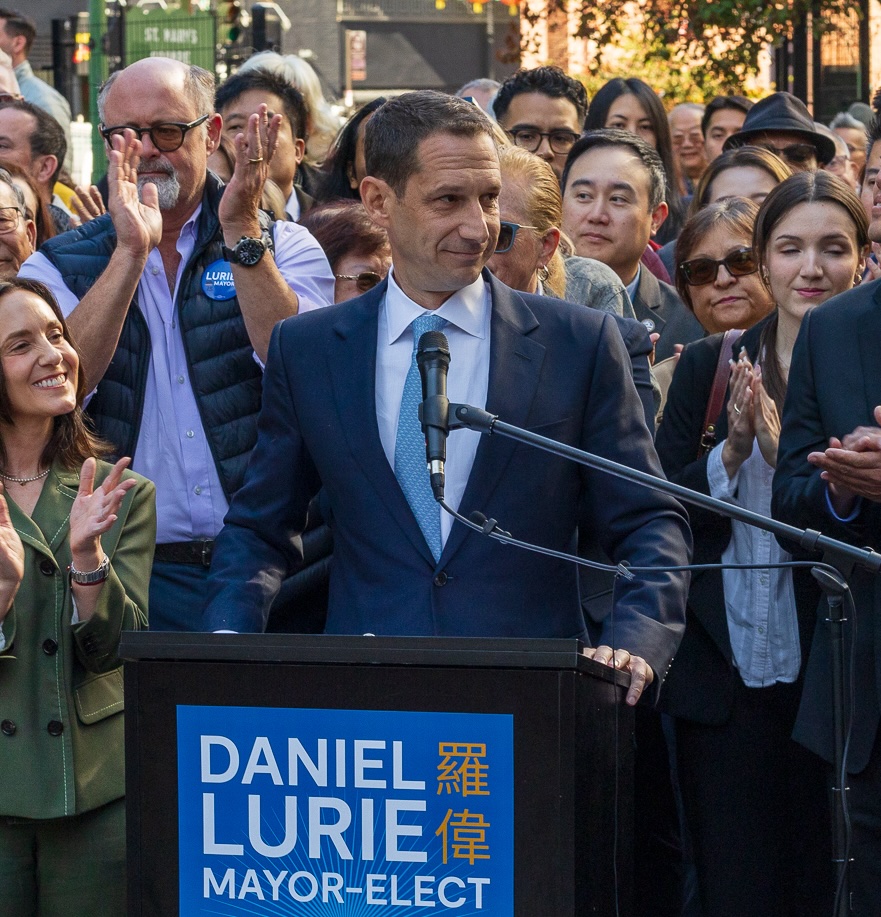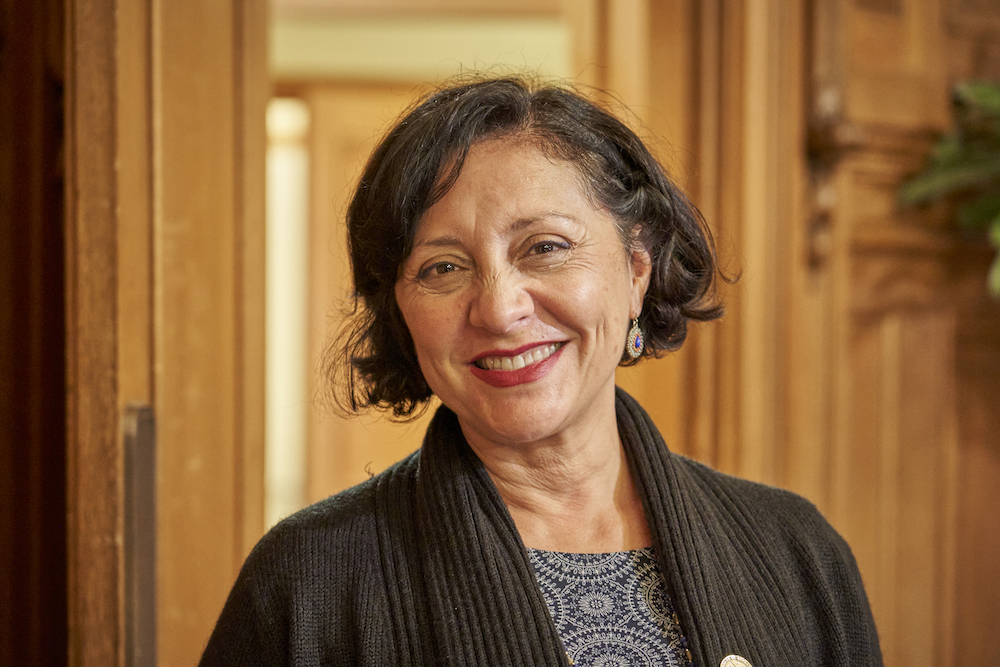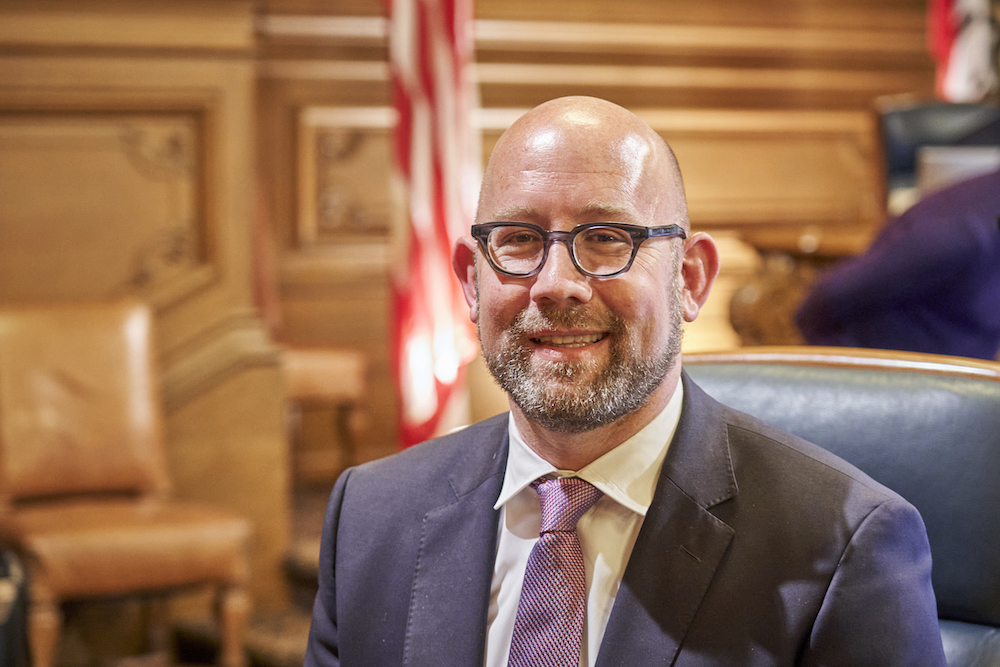The big media event of the week is, of course, the inauguration of Mayor Daniel Lurie. He’ll take the oath of office Wednesday/8 with a ceremony at Civic Center Plaza starting at 11am. It’s open to the public but the seating is already taken, so people who want to check it out will have to stand in the back, along the Larkin Street Corridor near the Main Branch Library. Lurie will host an open house at City Hall afterward.
But that’s not the only thing happening Wednesday. The Board of Supes will hold its first meeting of the year—and elect a new president.

The outcome matters for a lot of reasons.
The board president appoints committee members—and a conservative would likely give the most powerful jobs (including the Budget Committee) to members of the pro-cop wing that would move to cut spending on nonprofits and social services. Progressives would be relegated to minor roles.
The new president will also have to work closely with Lurie, who has no political experience. It’s a staff-heavy job: The office has so many details to handle that it requires the president to have experienced, hard-working aides.
“You need someone with predictability and stability, someone who doesn’t play games,” outgoing Sup. Aaron Peskin, who has been board president three times, told me. “There’s nothing sexy about it; 90 percent of the job is just making sure the place is operating, that you are meeting countless deadlines. You need highly competent staff who are available all the time.”
Two people are clearly interested in the job—Sups. Rafael Mandelman and Myrna Melgar. They will be nominated in the first round. It’s also possible that Sup. Shamann Walton will get nominated.

The progressives are in the minority this time around, with only four clear votes—Walton, and Sups. Connie Chan, Chyanne Chen, and Jackie Fielder. But those four votes will be crucial, since it takes six votes to win, and no candidate has an easy path to six.
The first step is nominations, and any supe can nominate any board member, including themself. After all the names are in, the nominations close and the clerk calls the roll.
If nobody gets six votes, the clerk calls the roll again. And again.
If it’s close, you never know what can happen.
Two years ago, Walton, Mandelman, and Chan all were nominated, and none had six votes. So after 15 rounds of deadlock, the board voted to re-open the nominations, and Sup Aaron Peskin came out of nowhere to win.
The progressives’ biggest worry: The nominations get re-opened again, and Sup. Matt Dorsey (who at this point is saying he supports Mandelman) puts his name in and wins.

The biggest prize is the Budget Committee, which starts off with three members and expands to five when the real work starts in the spring. The “moderates” who were elected with the support of the billionaire astroturf groups want to show off their power; they’ll be demanding a conservative committee chair.
I can tell you this: Nobody at this point has a lock, and there’s lots of lobbying going on.
Mandelman told me he doesn’t know if he has six votes. Melgar says she doesn’t have six votes lined up either.
Part of the dynamic will tell us something about the future alliances of the new board. As Melgar told me, there’s a split among the more conservative supes between the ones who are Yimby urbanists concerned about more housing development and the ones who care most about law enforcement and public safety.
“There are still three days,” Mandelman told me, “and these things can move very fast.”
Dorsey has taken his anti-drug politics to a new level: He’s calling on city officials to arrest at least 100 people every night for drug use on Sixth Street.
We’re not just talking about dealers here: In a press release, he called on the city to “maximize the arrests and compulsory detox treatment to solve drug-related lawlessness.”
“I am asking city agencies for a plan to effect 100 arrests nightly to compel detox and treatment for those engaged in public drug use.”
In a tweet, Dorsey said he wants to “restore order to our streets, diminish SF’s attraction as a drug destination, and make consequential interventions in deadly behavior.”
I don’t know where those 100 people arrested every night would go; the jail is already way overcrowded and conditions there are terrible: The facility wasn’t designed as a detox center, and the deputies who staff it aren’t trained in addiction medicine. The city doesn’t have the in-patient beds for that many new people seeking substance use treatment.
Most experts I have interviewed over the years agree that forced treatment hardly ever works anyway.
None of that is addressed in Dorsey’s press release.
The campaign to recall Sup. Joel Engardio has barely begun gathering signatures, but the anti-recall campaign is well underway. The StopTheEngardioRecall committee sent out a mailing Saturday asking for money. The group hasn’t filed paperwork with the SF Ethics Commission yet, but given Engardio’s connections with the billionaire astroturf groups, it will not lack for funding.
Here’s what’s interesting. From Engardio’s statement:
Voters have a democratic right to recall elected leaders, of course. But recalls should be reserved for elected officials who commit the most egregious offenses or who are unable or unwilling to fulfill the duties of their office. No matter the result, this recall will not change the outcome or implementation of Prop K.
Engardio won his job in part as a strong supporter of the recall of District Attorney Chesa Boudin. You can disagree with Boudin’s policies, but I don’t know of anyone who has accused him of “egregious offenses” and he was clearly willing and able to do his job. In fact, he did exactly what he promised to do when he won the election.
So I sent Engardio a text: “What ‘egregious offense’ did Chesa Boudin commit?” I have not heard a response.
Gov. Gavin Newsom and Mayor-elect Lurie have grand plans for the housing crisis, according to the Chron:
Newsom and Lurie say focusing on improving the existing accountability systems is key — along with the hope that interest rates continue to fall — to building more units and hopefully lowering the costs of housing.
Parse that: “hope that interest rates continue to fall … hopefully lowering the cost of housing.”
That’s a lot of hope, and not a lot of policy.
More:
“The original sin in this state is affordability, and the lack of urgency and delays that hold back housing. We’re turning up the heat on local communities to fix the imbalance of supply and demand,” said Bob Salladay, Newsom’s senior adviser for communications.
That’s the “original sin” of California? Not the genocide of tens of thousands of Native Americans? Not the forced labor and racist exclusion of tens of thousands of Chinese immigrants?
No: The original sin is …. zoning?
And lower interest rates (not investments in social housing) are going to solve the affordability problem?
Good luck, Gavin and Daniel, if that’s the best you can do.




